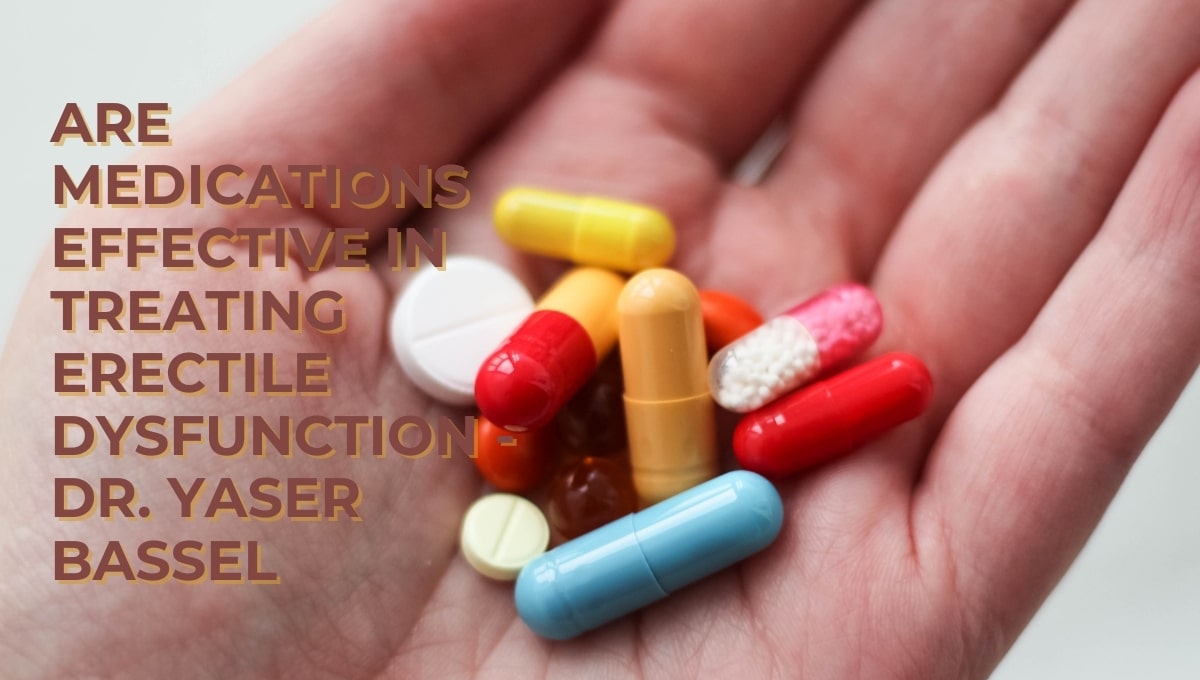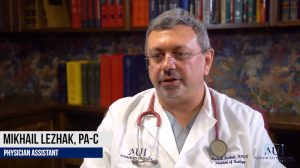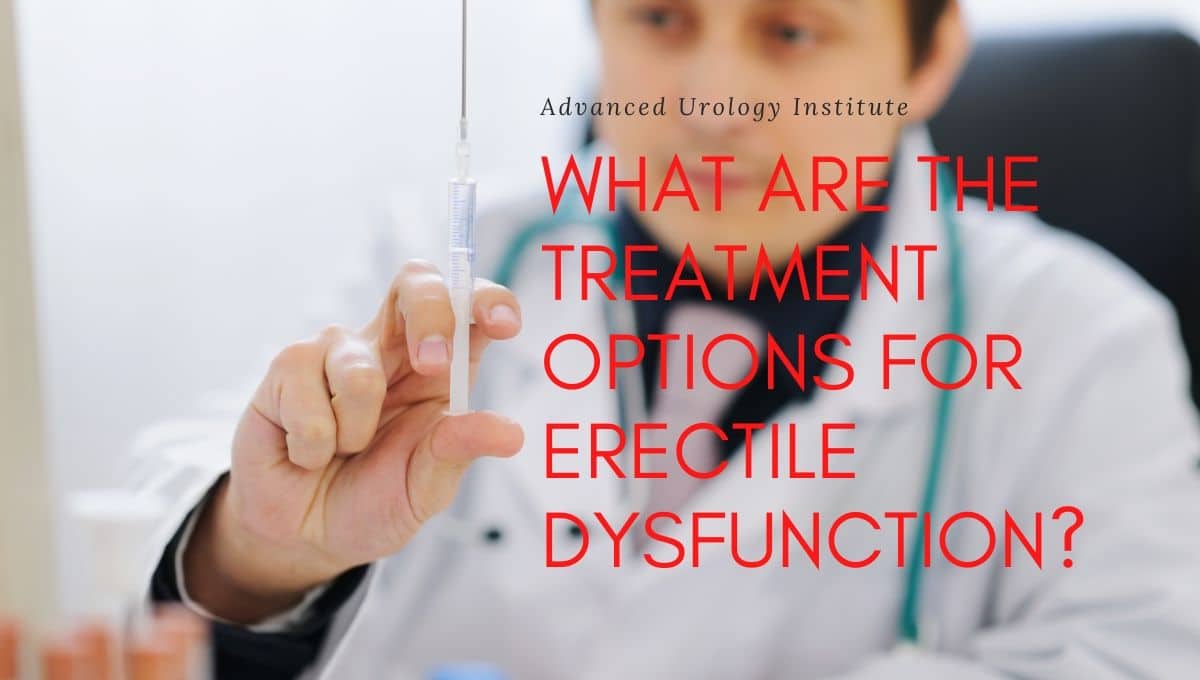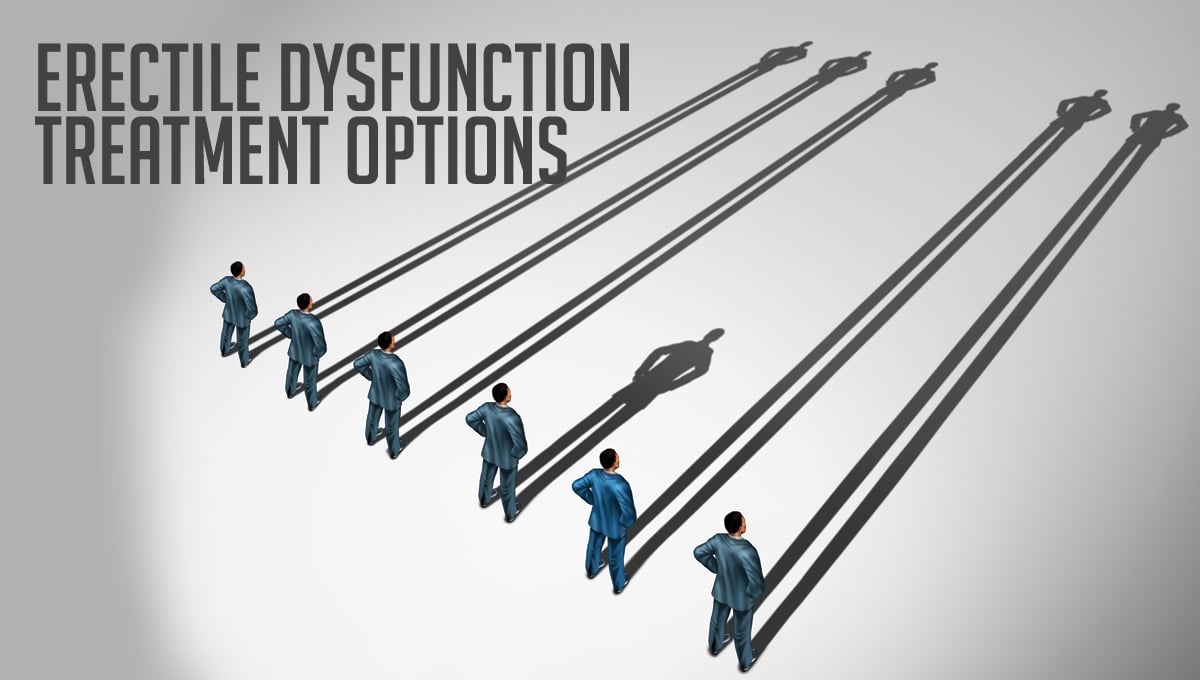Dr. Shaw Zhou, urologist in St Petersburg, FL talks about erectile dysfunction treatment options such as eWave and penile implants.
Continue readingHow to Treat Erectile Dysfunction with Dr. Rolando Rivera?
Are you having problems getting and keeping an erection for enjoyable and satisfying sexual intercourse? If so, you are not alone. And you shouldn’t be worried if it happened once or occurs rarely. Any man can have an occasional
Continue readingAre Medications Effective in Treating Erectile Dysfunction – Dr. Yaser Bassel
My name is Yaser Bassel, I am a board-certified urologist with Advanced Urology Institute.
 I would say the vast majority of them, especially if they have not tried medications prior to them being seen in our office, probably 70-80 percent of those men will at least have a response to the medication oftentimes enough to basically be satisfactory to the patient or make them pleased with the way the medication is working. So most of them would actually get a good response to the medication.
I would say the vast majority of them, especially if they have not tried medications prior to them being seen in our office, probably 70-80 percent of those men will at least have a response to the medication oftentimes enough to basically be satisfactory to the patient or make them pleased with the way the medication is working. So most of them would actually get a good response to the medication.
Are there other treatment options for ED?
As far as what we have available to us now and what’s on the forefront, [for] those patients that do not want medication there are some newer technologies that are available that utilize shockwave energy to try and create newer vascularity in order to get a better response for that medication and that is something that’s basically come out over the past couple of years that we are starting to utilize in our practice. For those that do not respond to medication and still want to have treatment, the next step oftentimes [is] performing a test called a Penile Doppler where we will inject the penis with a vasoactive medication which will then initiate an erection so that we can measure blood flow and also measure for a venous leak which are two reasons why patients can have issues with erectile dysfunction.
If you are in need of a consultation or have any questions, visit us at our Tampa, FL office or call us at (813) 749-0820.
What are the treatment options for erectile dysfunction?
Erectile dysfunction is a common disorder that affects men of all ages. It is a man’s inability to get and maintain an erection. There are many different causes of ED and in many cases there is more than one underlying cause. All a urologist needs is a physical exam and a few questions answered in order to diagnose erectile dysfunction in a patient.
 For urologists like Dr. Brian Hale, treatment for erectile dysfunction begins with trying three different medications. The medications are generally oral and easy to take. The urologist will monitor the results of the oral drugs with the patient. Very often, at least one of the oral drugs prescribed will resolve the issue. For these cases, the urologist will write a prescription for the drug and continue to monitor its effectiveness through routine appointments.
For urologists like Dr. Brian Hale, treatment for erectile dysfunction begins with trying three different medications. The medications are generally oral and easy to take. The urologist will monitor the results of the oral drugs with the patient. Very often, at least one of the oral drugs prescribed will resolve the issue. For these cases, the urologist will write a prescription for the drug and continue to monitor its effectiveness through routine appointments.
If the urologist and the patient are unable to find an oral medication that works effectively, there are other options to consider. One possibility is injection therapy. Small injections into the shaft of the penis are used to dilate the penile arteries, helping increase blood flow, causing an erection. For most men who do not see results with the oral medication, injection therapy is their next best option.
For many men, injection therapy can seem a bit overwhelming at first, maybe even frightening. But in reality, the injections are easy to administer and are relatively painless. The urologist and the patient will begin the injection therapy with a teaching session at the urologist’s office. The urologist may use an ultrasound to monitor the reaction of the blood vessels to the injection to help determine the right dosage for the patient. The patient is also taught how to administer the injection on his own.
Patients are generally pleased after they start injection therapy. The teaching session at the office helps the patient see that the injections are not painful and can easily be done at home. It is very rare that a patient cannot do the injection therapy himself. For those who did not respond positively to the oral drugs, injection therapy is an ideal treatment to produce the desired results and overcome the erectile dysfunction.
Treating erectile dysfunction is an important part of a patient’s well being, both personally and within his relationships. The urologists of the Advanced Urology Institute offer many options for treatment and remain committed to finding the best one for each patient. For more information, visit the Advanced Urology Institute website.
Erectile Dysfunction Treatment Options
Although it is very common, erectile dysfunction can be an embarrassing subject to discuss even with medical professionals. ED can affect men of all ages and can be caused by a variety of factors, so a wide range of treatment options are available.
How Is Erectile Dysfunction Diagnosed?
According to the Mayo Clinic, ED is the chronic inability to get and maintain an erection. It can be diagnosed by talking with a doctor, ideally a urologist, about the patient’s medical history. The doctor may perform a series of tests, including a physical exam, blood or urine tests, an ultrasound, or even a psychological examination to determine if mental health is a factor in the patient’s erectile dysfunction. Sometimes ED is connected to another underlying issue. All of these factors come into play when determining treatment.
What Are The Treatment Options For Erectile Dysfunction?
 There are many potential steps to be taken in the ED treatment process. The first step, especially when the patient is a younger man, is usually medical management. Doctors may prescribe common medications like Viagra or Cialis. Both medications are taken only when needed. They do not help cause an erection until the patient has already become sexually stimulated. They are safe, commonly prescribed medications; however, they can cause serious side effects in combination with other medicines, especially nitrates.
There are many potential steps to be taken in the ED treatment process. The first step, especially when the patient is a younger man, is usually medical management. Doctors may prescribe common medications like Viagra or Cialis. Both medications are taken only when needed. They do not help cause an erection until the patient has already become sexually stimulated. They are safe, commonly prescribed medications; however, they can cause serious side effects in combination with other medicines, especially nitrates.
For many patients, Viagra or Cialis is enough to help solve the problem of erectile dysfunction. If, however, they are not, another option is a penile injection. The initial penile injection may be given at the doctor’s office as a way to introduce the patient to the process. After this introduction, the patient can self-administer the injections at home as needed.
When these medications are not enough to solve a patient’s erectile dysfunction, another option is penile implant surgery. This is only recommended in cases where no other treatment option has been successful and when the patient’s ED has no chance of being reversed. There are a variety of penile implants on the market to accommodate a patient’s lifestyle and needs.
Erectile dysfunction can lead to feelings of embarrassment and shame, relationship difficulties and lowered self-confidence. However, there is no need to worry that these issues will last a lifetime. With the wide range of treatment options available, ED can be managed, allowing patients to resume normal sexual activity after consulting with their doctor. Our team of urologists at Advanced Urology Institute have extensive experience in working with patients experiencing erectile dysfunction. For more information, visit the Advanced Urology Institute website.
What is Erectile Dysfunction and How to Treat it?
Erectile dysfunction is the inability to have or maintain an erection firm enough for sexual intercourse. Any man may find himself occasionally unable to achieve an erection. That is normal. It is only when this inability becomes a sustained everyday occurrence that he may consider the possibility of erectile dysfunction.
The main factor for erectile dysfunction is aging, starting about the age of 50. Over 50 percent of men over 50 suffer from erectile dysfunction. Other risk factors include cardiovascular disease, high blood sugar, high blood pressure and high cholesterol levels. Emotional and mental conditions such as depression and anxiety also can cause erectile dysfunction.
Treating Erectile Dysfunction
Men who suffer from erectile dysfunction have a number of treatment options. If it is a symptom of an underlying illness, treatment should be focused on the underlying illness. When erectile dysfunction appears with no underlying cause, the following treatment options are available and are highly successful.
1. Oral Medication. These are pills given to increase blood flow to the penis, thus causing an erection. The most common ones are vardenafil or Levitra, Cialis or tadalafil, viagra and avanafil. Oral medication is most successful in patients with mild cases of erectile dysfunction.
2. Penile injections. The most common injectible drug is alprostadil. Using a very fine needle, a patient injects the drug into the base of the penis. The drug increases the size of the arteries that supply blood to the penis. Alprostadil also can be administered by placing a small alprostadil suppository at the opening of the penis, rather than by injection.
3. Vacuum erection device. This is a tube with a hand or battery powered pump. The tube is placed over the penis and the pump is used to draw air out, creating a vacuum. The vacuum thus draws blood into the penis, causing an erection.
4. Penile implants. A minor surgical procedure is used to introduce bendable rods at the sides of the penis. These rods give the penis a firmness that allows for intercourse. An alternative of the rods is the insertion of fluid filled cylinders connected to a pump placed in the scrotum. Engaging the pump inflates the cylinders which causes the penis to firm up.
It is advisable for men, especially those approaching age 50, to maintain a healthy relationship with a urologist. An experienced urologist can diagnose and offer advice on the best treatment options. It is also important to stay informed on the causes, signs and symptoms of erectile dysfunction. Many professional sites, such as the one maintained by the Advanced Urology Institute, are very helpful. Advanced Urology Institute also has an experienced team of specialists who can help with consultation, diagnosis and treatment. For more information, visit the Advanced Urology Institute website.







